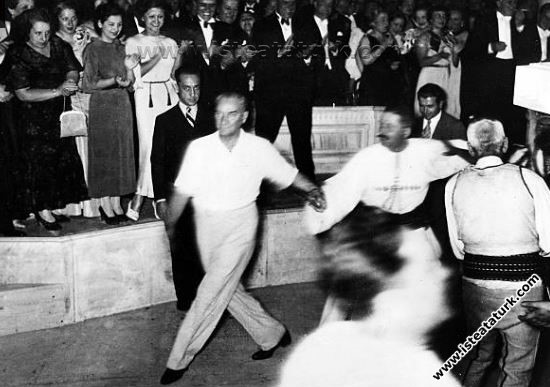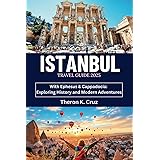Mustafa Kemal Atatürk, the founder of the modern Turkish Republic, is unique and highly revered among Turkish people for several reasons. Atatürk led Turkey through a transformative period, instituting a series of political, social, and cultural reforms known as Kemalism.
Here are some key aspects that make Atatürk unique for Turkish people:
- Founding Father: Atatürk played a pivotal role in establishing the Republic of Turkey in 1923 after the fall of the Ottoman Empire. His leadership marked a departure from the imperial past, emphasizing a modern, secular, and democratic state.
- Reformist Vision: Atatürk implemented a series of radical reforms to modernize Turkey, including the adoption of a new legal code, introduction of a new alphabet, and promotion of women’s rights. These reforms aimed at transforming Turkey into a secular and Western-oriented nation.
- Nationalism and Independence: Atatürk’s leadership during the War of Independence (1919-1922) solidified his status as a national hero. His commitment to preserving Turkish sovereignty and independence resonates deeply with the Turkish people.
- Cultural Impact: Atatürk’s emphasis on education and cultural development left a lasting impact. His efforts to promote literacy and education laid the foundation for a more educated and informed society.
- Symbol of Unity: Atatürk is seen as a unifying figure, transcending political and ideological divides. His image and principles are often invoked to foster a sense of national identity and unity among the diverse population of Turkey.
Overall, Atatürk’s legacy as a visionary leader, military strategist, and nation-builder makes him a unique and revered figure in Turkish history and culture.
The celebration of Mustafa Kemal Atatürk in Turkey is marked by deep respect and love for the founder of the modern Turkish Republic.
Here are several reasons why Turks celebrate Atatürk so passionately each year:
- Founding Father: Atatürk is acknowledged as the visionary leader who founded the Republic of Turkey in 1923. His role in shaping the nation and steering it through a period of significant transformation is widely recognized.
- Secularism and Modernization: Atatürk’s reforms aimed at modernizing Turkey by introducing secularism, education, and gender equality. Many Turks see these changes as crucial steps toward building a progressive and democratic society.
- National Unity: Atatürk played a key role in uniting diverse ethnic and cultural groups under the banner of Turkish identity. His emphasis on national unity remains a source of inspiration.
- War of Independence: Atatürk’s leadership during the War of Independence is a symbol of resilience and determination. The victory in this war is considered a defining moment in Turkish history, securing the nation’s sovereignty.
- Cultural Impact: Atatürk’s contributions to Turkish culture, including the adoption of a new alphabet, promotion of the Turkish language, and support for the arts and literature, are celebrated as essential components of national identity.
- Legacy of Leadership: Atatürk’s leadership qualities, including his strategic thinking and dedication to the welfare of the Turkish people, contribute to his enduring legacy.
The celebrations, particularly on key anniversaries like Republic Day on October 29th, serve as a time for reflection, patriotism, and a collective expression of gratitude for the transformative impact Atatürk had on the country. The love for Atatürk is deeply ingrained in Turkish culture, transcending political differences and serving as a unifying force.
Republican Celebrations
Turks celebrate Republic Day, observed on October 29th, with great sincerity and enthusiasm for several significant reasons:
- Founding of the Republic: October 29, 1923, marks the official proclamation of the Republic of Turkey, with Mustafa Kemal Atatürk as its first president. The day symbolizes the end of the Ottoman Empire and the beginning of a new, modern, and secular state.
- National Pride: Republic Day is a source of immense national pride for Turks. It commemorates the establishment of a sovereign and independent nation, emphasizing the resilience and determination shown during the War of Independence.
- Atatürk’s Leadership: The day is an occasion to honor the visionary leadership of Atatürk, who played a central role in shaping the republic and instituting a series of reforms to modernize Turkey.
- Secular Values: Republic Day represents the commitment to secularism, a core principle in the foundation of the Turkish Republic. This celebration reflects the importance of separating religious and political institutions.
- Cultural Identity: The day is an opportunity for Turks to celebrate their cultural identity, with events, parades, and festivities showcasing the rich history and diversity of the nation.
- Unity and Solidarity: Republic Day fosters a sense of unity and solidarity among the Turkish people. It serves as a reminder of the collective efforts that led to the establishment of the republic and the importance of working together for the nation’s progress.
- Patriotic Spirit: The celebrations on Republic Day evoke a strong sense of patriotism. Citizens express their love for their country through various activities, ceremonies, and displays of the Turkish flag.
In summary, Republic Day is a deeply meaningful occasion for Turks, representing the foundation of the modern Turkish state, the principles of secularism, and the enduring legacy of Mustafa Kemal Atatürk. The honesty and sincerity in celebrating this day stem from a genuine appreciation for the values and ideals that define the Republic of Turkey.





















